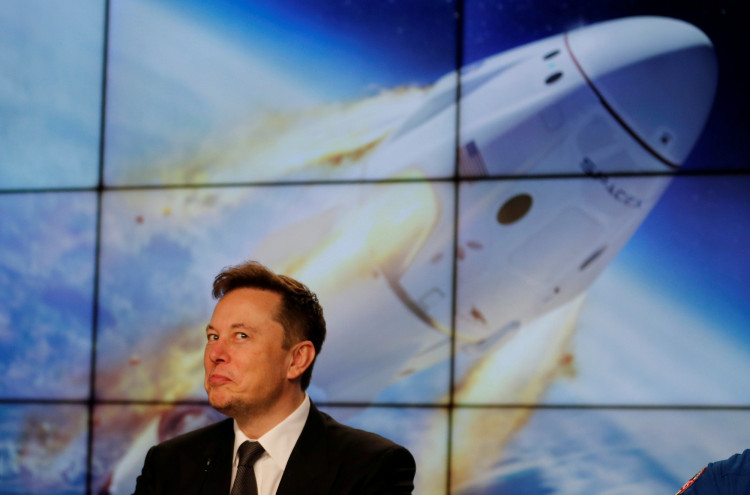SpaceX CEO Elon Musk has confirmed plans to spin off the company's Starlink high-speed, broadband internet satellite service.
Musk confirmed news Starlink would go public - making enough money to become a viable enterprise. Starlink should eventually become the most profitable of Musk's disparate companies.
"We will probably initial public offering Starlink, but only several years in the future when revenue growth is smooth & predictable," tweeted Musk. "Public market does not like erratic cash flow...ha ha."
SpaceX president Gwynne Shotwell said the company would spin off Starlink because the latter was "the right kind of business that we can go ahead and take public."
Musk's new point of view about Starlink going public contradicts previous statements he's made. Last March, Musk said SpaceX had no plans to spin-off Starlink, and won't be doing an initial public offering anytime soon.
"We're thinking about that zero," said Musk about a possible Starlink initial public offering, but that was six months ago at the Satellite 2020 conference in Washington D.C.
Musk felt this way back then because he said SpaceX's goal is for Starlink "to be in the 'not bankrupt' category." He pointed to the number of companies that failed in their plans to orbit their internet constellations in the 2000s.
Musk still considers Starlink his best cash cow. He once said he sees Starlink as an important "way for SpaceX to generate revenue that can be used to develop more and more advanced rockets and spaceships."
Musk has estimated Starlink might generate revenues of $30 billion a year, which is 10 times the highest annual revenue SpaceX expects from its launch business.
SpaceX has orbited more than 700 Starlink satellites since the first mission in May 2019. For the first phase, SpaceX will assemble 12,000 Starlink small satellites (smallsats) into a low Earth orbit super constellation with the aim of providing high-speed and cheap global internet access.
In October 2019, however, SpaceX said it planned to orbit an astonishing 42,000 Starlink satellites instead of the 12,000 originally approved by the International Telecommunication Union.
The U.S. Federal Communications Commission filed paperwork with the union on behalf of SpaceX. The request was for permission to produce and deploy 30,000 additional Starlink satellites. Industry analysts said the cost of producing and launching these 30,000 smallsats might reach $60 billion.
SpaceX has also invested more than $70 million developing and producing thousands of authorized user terminals every month. AUTs are the devices consumers will use to connect to Starlink's space-based internet network.
SpaceX claims "nearly 700,000 individuals" across the U.S. have indicated their interest in its satellite internet service. SpaceX has asked the Federal Communications Commission if it can increase the number of authorized AUTs to 5 million from 1 million.






